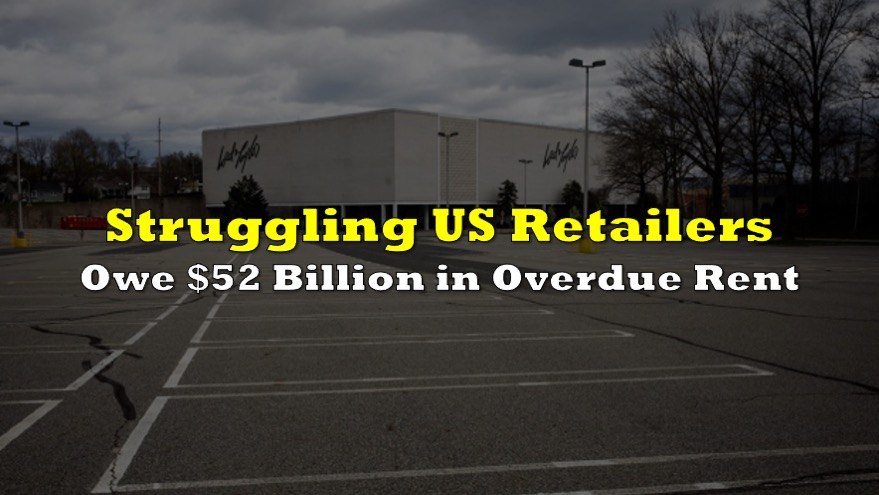Former WeWork CEO Adam Neumann wanted to “solve” the shelter problem and disrupt the “world’s largest asset class,” stemming from his downfall from the coworking spaces firm. Aside from the announcement that the unidentified venture secured $350 million investment from Andreessen Horowitz, the project has been kept under wraps for months.
Neumann, however, gave an overarching view of the business model in a closed-door conference in November organized by its major venture capital backer–video coverage of which was recently released by Andreessen Horowitz.
“It’s not that we’ve actually been keeping it under our vest. It’s that one of the many lessons that we learned from the past is: talk is cheap, we just want to build,” Neumann said.
Neumann’s residential real estate company Flow, according to him, will be “creating an elevated experience for the resident… and share with the resident a portion of the value that they create.”
In essence, Flow is billed as an opportunity to transform standard apartment living into a community of shared experiences. Allowing tenants to share in the value — or at least feel as if they are — could be part of it.
The business model(?)
Flow aims to create more value within the residential real estate industry as the rate of renters has increased over the years. Neumann summed up the statistics discussed in the conference, citing that “for 80 years, owning a home used to be the way the majority of us was creating equity.”
“If we’re correct and 70% [of Americans] are renters, and that number is only gonna go up, where are they going to create equity?” Neumann asked.
In describing Flow’s solution, Neumann explained that it will be built on four pillars: a branded property management company that administers its buildings, a real estate fund that owns the buildings, a financial services company, and a “mechanism that’s going to take some of the value and share it with the value creators.”
Flow reportedly intends to launch in locations such as Atlanta, Fort Lauderdale, Miami, and Nashville, and will own and operate multifamily residential apartment buildings.
Neumann has also been interested in cryptocurrency since leaving WeWork, and Flow’s financial services branch will incorporate a digital wallet for dealing with cryptocurrencies. Andreessen Horowitz’s crypto venture a16z also led the $70 million funding round raised by Neumann’s Flowcarbon in May 2022. Around $32 million of the total proceeds from the funding came from venture capitalists while the remaining $38 million was raised from the sale of Flowcarbon’s carbon-backed crypto token Goddess Nature Token.
“What we got excited about the… business of Flow is that it’s actually a flywheel,” Neumann touted. “If we can actually create a better experience in the building, then the building performs better and makes a higher [net operating income].”
He then added that the higher bottomline should progress to having more buildings and more renters, with the latter being captured market for using Flow’s financial services as they pay their rent. Adding to the value chain is the financial arm creating services that “are actually meaningful”–which Neumann refers to as “financial wellness”–that could drive more users.
“If we are able to take this value-creating mechanisms and share with the residents a portion of the value, it’s going to make them feel ownership,” Neumann said. “And it’s not just ownership [like], ‘I feel like I am part of something.’ It’s, ‘I actually own part of something.’”
But in terms of the value-creating mechanism–seemingly the integral part of the novelty of Flow in the real estate industry–Neumann did not elaborate. According to sources acquainted with the endeavor, renters will not accrue equity in the flats, nor will they have the option to purchase them – they will remain tenants.
“If you’re in an apartment building and you’re a renter and your toilet gets clogged, you call the super,” he added. “If you’re in your own apartment, and you bought it and you own it and your toilet gets clogged, you take the plunger.”
The key to the real estate market is helping people unclog their toilet. That's why we named the company Flow.
— Liron Shapira (@liron) February 7, 2023
Shared economy
This is not the first time Neumann has attempted to enter the residential real estate space. In 2016, he created WeLive, a concept for rental flats with variable lease options and equipped units. The concept substituted “membership” for traditional tenancy, allowing residents to move between WeLive flats.
“It’s going to be a new way of living, day to day, week to week, month to month, year to year. You will be a global citizen of the world. If you’re a member of one, you’re a member of all of them,” Neumann told The Guardian in 2016.
WeLive was short-lived, since WeWork’s failed initial public offering preparations showed that it was losing more than $200,000 every hour. The remaining two WeLive locations continued to run more like hotels until they were eventually sold by WeWork.
The Flow business model–or the coyly explained version of it by Neumann–also draws some parallel, albeit modified, features from Airbnb. Instead of property owners listing their spaces for rent on Airbnb’s platform, Flow is buying properties for users to rent. But both companies earn from paid rent.
Airbnb hosts are also able to offer “experiences” around the area of their properties, contributing to the value chain of the business model.
Despite the absence of its own payment services, Airbnb earned $58.5 million in interest income on its own cash as well as the cash of its customers in the third quarter of 2022–thanks to rising interest rates. From the moment a user pays Airbnb to book a place, the company holds the cash in its coffers before transferring it to the host only by the time the user hits the door.
Airbnb has also noted an increase in average trip length, with over 7-day stays now comprising half of its gross bookings. This led the firm to conclude that “guests aren’t just traveling on Airbnb—they’re living on Airbnb.”
The key difference is the ownership of the properties but this might soon blur once Flow starts offering its services to new developments and other third parties (as previously reported) or Airbnb starts buying its own properties to host guests.
😂
— Brian Chesky (@bchesky) February 8, 2023
WeWork to Flow
Flow has also reflected some of its identity from Neumann’s previous company WeWork. When he said that Flow will offer “elevated experiences,” WeWork had a mission statement “to elevate the world’s consciousness” during its co-founder’s tenure at the firm. The concept of monetizing “community” was also a big selling point for the coworking spaces firm.
Neumann’s return to the investing scene, followed by a major backing from Andreessen Horowitz, has stirred conversations within the space. The venture capitalist’s investment in Flow, said to be worth $350 million, will arguably be the largest check written for a single round of backing in the fund’s history. This is also set to value the venture at $1 billion.
“The residential real estate world needs to address these changing dynamics. And yet virtually no aspect of the modern housing market is ready for these changes,” wrote the investment firm’s co-founder Marc Andreessen in the company blog in August 2022. “And so, we are excited to partner with Adam Neumann and his colleagues on Flow, which is a direct strike on precisely this problem.”
The venture capital firm seems steadfast in backing Neumann, adding that “it’s often under appreciated that only one person has fundamentally redesigned the office experience and led a paradigm-changing global company in the process: Adam Neumann.”
The controversial Israeli-American businessman’s stint leading WeWork has been marred with delayed IPO plans, a sexual harassment lawsuit, and an alleged marijuana trafficking incident. Prior to his resignation, some WeWork directors were seeking to remove Neumann as CEO after “a tumultuous week in which his eccentric behavior and drug use came to light.”
Information for this briefing was found via Bloomberg, Wired, The Real Deal, and the sources mentioned. The author has no securities or affiliations related to FlowCarbon. Not a recommendation to buy or sell. Always do additional research and consult a professional before purchasing a security. The author holds no licenses.









